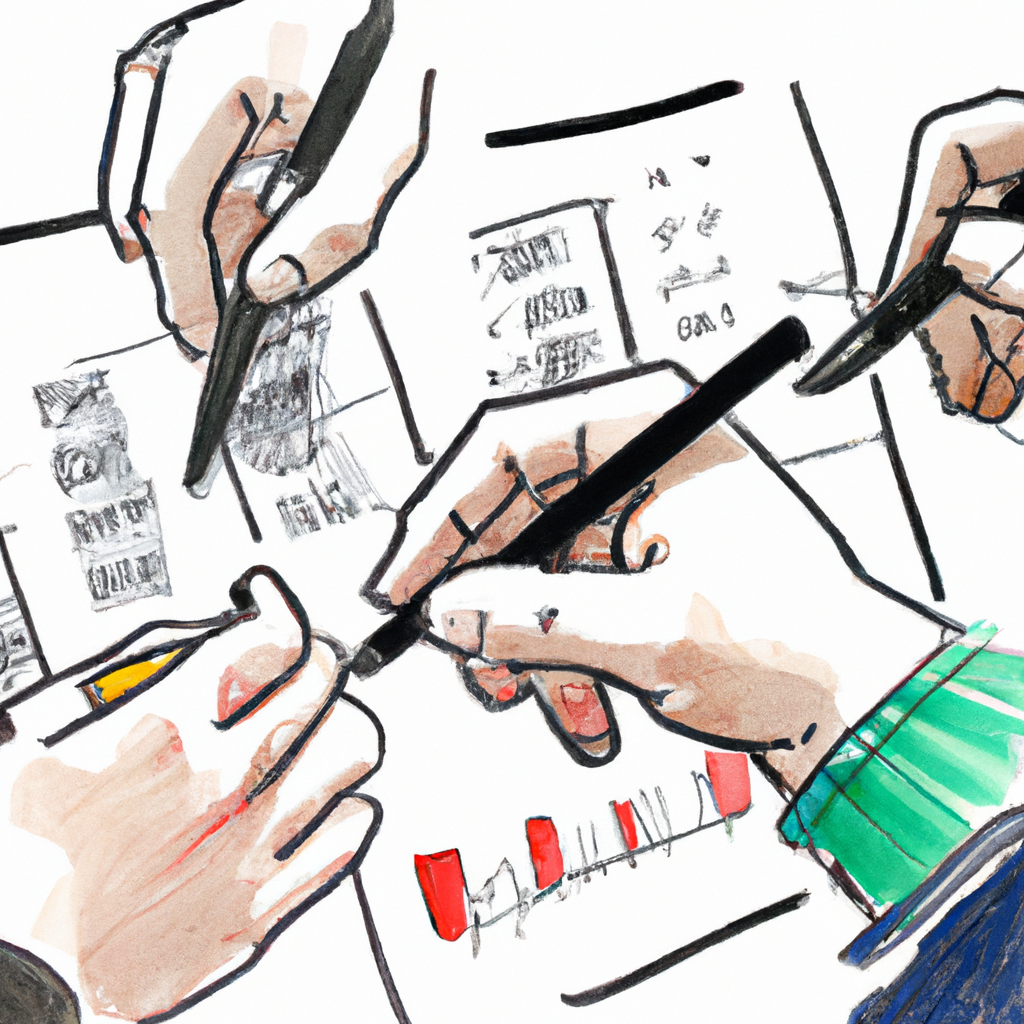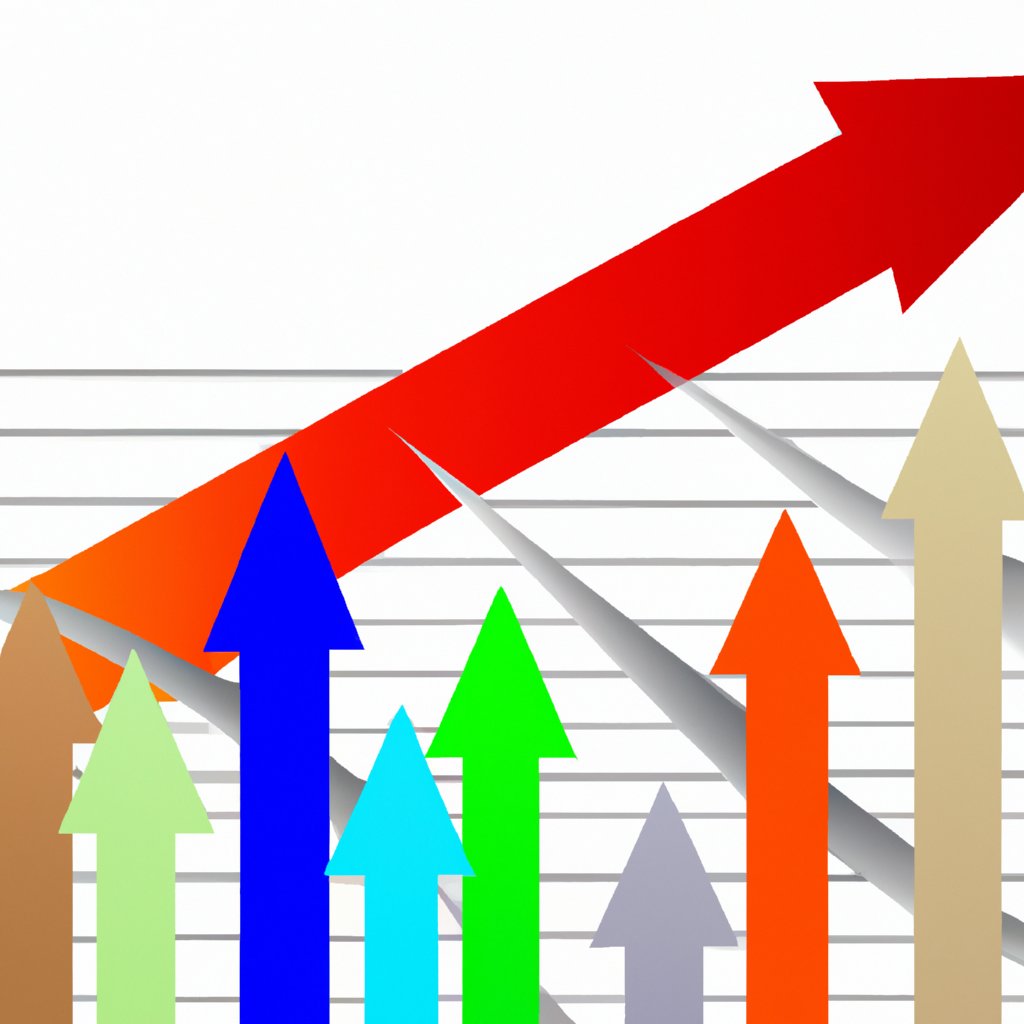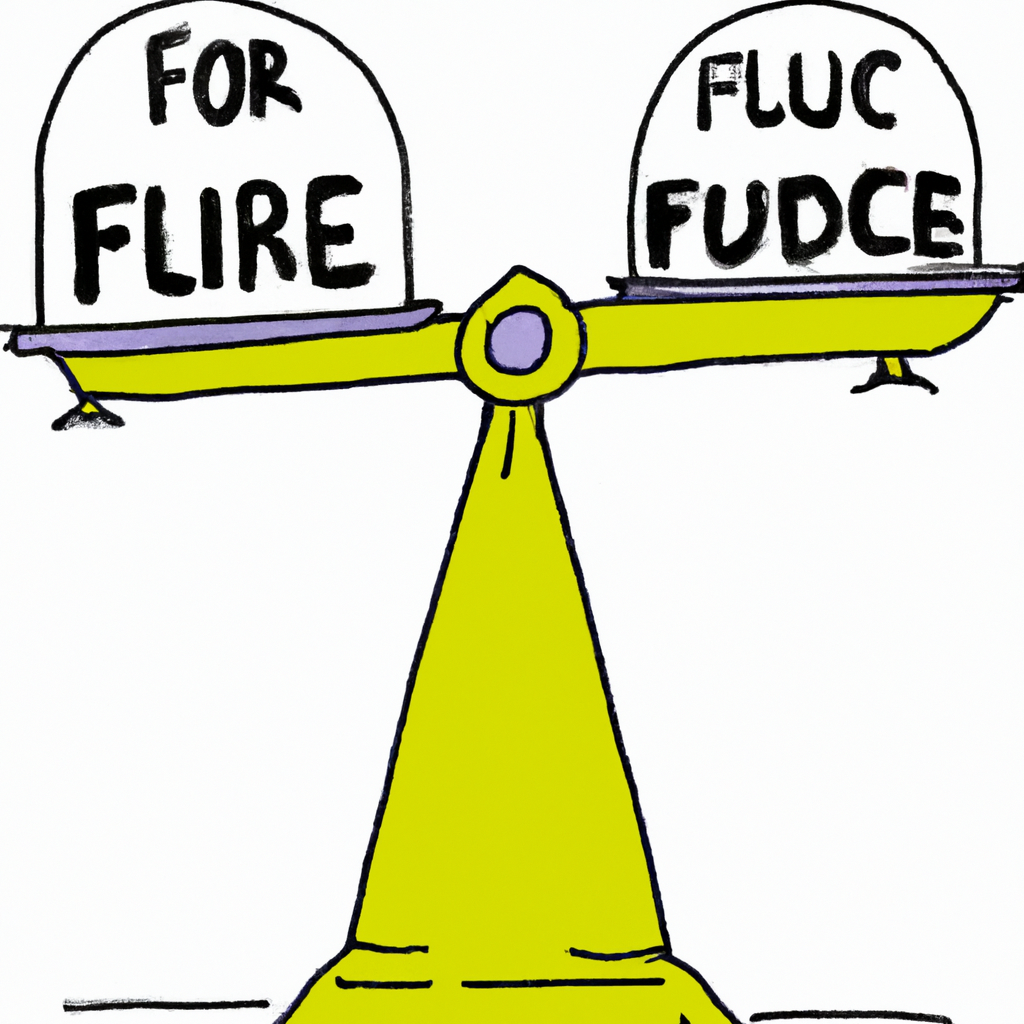Are you curious about financial derivatives and how they can be used in trading? Look no further! This comprehensive guide is designed for beginners who want to understand the ins and outs of futures contracts. In this article, we will explore the basics of futures contracts, including what they are, how they work, and the benefits and risks associated with trading them. We will also delve into the key differences between futures and options stock derivatives and provide strategies and tips for success in futures options trading. Whether you are new to the world of trading or looking to expand your knowledge, this beginner's guide to profiting from futures contracts is a must-read. So let's dive in and demystify the world of financial derivatives and futures contracts together.
1. Understanding Futures Contracts: A Comprehensive Guide for Beginners

Understanding Futures Contracts: A Comprehensive Guide for Beginners
In the world of finance, futures contracts are one of the most popular and widely used financial derivatives. These contracts allow investors to speculate on the future price of an asset, such as commodities, currencies, or financial instruments, without actually owning the underlying asset. For beginners looking to venture into futures and options stock derivatives, understanding futures contracts is essential.
A futures contract is an agreement between two parties, a buyer and a seller, to buy or sell an asset at a predetermined price and date in the future. The contract specifies the quantity and quality of the asset, as well as the delivery date and location. Unlike options contracts, futures contracts are binding, meaning both parties are obligated to fulfill the terms of the contract upon its expiration.
One of the key features of futures contracts is leverage. With a small initial investment called the margin, traders can control a much larger position in the underlying asset. This leverage can amplify profits, but it also increases the potential for losses. Therefore, beginners should exercise caution and thoroughly understand the risks involved before engaging in futures options trading.
Futures contracts serve various purposes for different market participants. For hedgers, such as farmers or manufacturers, futures contracts provide a way to lock in prices in advance, protecting them against adverse price movements. Speculators, on the other hand, aim to profit from price fluctuations by buying or selling futures contracts without any intention of taking physical delivery of the underlying asset.
To trade futures contracts, beginners need to open an account with a futures broker. These brokers act as intermediaries between traders and the exchanges where futures contracts are traded. It is crucial to choose a reputable broker that offers competitive fees, a user-friendly trading platform, and educational resources for beginners.
Before diving into futures trading, beginners should familiarize themselves with key concepts such as margin requirements, contract specifications, and the settlement process. They should also gain a solid understanding of technical and fundamental analysis, as these tools can help identify potential trading opportunities.
In conclusion, futures contracts are powerful financial derivatives that offer opportunities for profit and risk management. However, beginners should approach futures trading with caution and educate themselves thoroughly before entering the market. By following a comprehensive guide and understanding the basics of futures contracts, beginners can navigate the world of futures and options stock derivatives more confidently.
2. Exploring Financial Derivatives: An Introduction to Futures Contracts

Financial derivatives are complex financial instruments that derive their value from an underlying asset. One popular type of derivative is the futures contract. Futures contracts are agreements between two parties to buy or sell an asset at a predetermined price on a specific date in the future.
Futures contracts are widely used in various financial markets, including commodities, currencies, and stock indices. They serve as a means of hedging against price fluctuations, speculating on future price movements, and providing liquidity to the market.
For beginners, understanding futures contracts can seem overwhelming. However, with a little guidance, anyone can grasp the basics. Futures contracts are similar to options contracts, but they have some key differences. While options give the holder the right, but not the obligation, to buy or sell an asset, futures contracts require both parties to fulfill the terms of the contract.
One of the main advantages of futures contracts is leverage. Traders can control a larger position in the market with a smaller initial investment. This allows for potentially higher returns, but it also carries higher risks. It is crucial for beginners to understand and manage the risks associated with futures trading.
To trade futures contracts, one must open an account with a futures broker. These brokers provide access to various markets and offer trading platforms that allow users to place orders and monitor their positions. It is important to choose a reputable broker with proper regulation and competitive fees.
Before diving into futures trading, beginners should educate themselves about the underlying assets and the factors that influence their prices. They should also familiarize themselves with technical and fundamental analysis techniques to make informed trading decisions.
Furthermore, understanding the various types of futures contracts available is essential. Some contracts are settled in cash, while others are physically delivered. Each type has its advantages and considerations that traders need to be aware of.
In conclusion, futures contracts are powerful financial derivatives that offer opportunities for both hedging and speculating. While they can be complex, beginners can navigate the world of futures trading by gaining knowledge, choosing a reliable broker, and understanding the risks involved. By taking the time to learn the basics and continuously improving their skills, beginners can embark on a successful journey in futures and options stock derivatives trading.
3. Futures Contract: A Powerful Tool for Futures & Options Trading

A futures contract is a financial derivative that allows traders to speculate on the future price movement of an underlying asset, such as commodities, currencies, or stock market indices. It is a powerful tool in futures and options trading, offering traders the opportunity to profit from price fluctuations without owning the actual asset.
For beginners, understanding the basics of futures contracts is essential. Unlike traditional stock trading, where investors buy and sell shares of a company, futures contracts involve trading contracts that specify the delivery of a certain quantity of an asset at a predetermined price and date in the future.
One of the main advantages of futures contracts is their leverage. Traders can control a large position in the market with only a fraction of the total value of the contract. This leverage amplifies potential profits but also increases the risk of losses. Therefore, beginners should exercise caution and carefully manage their positions.
Futures contracts also provide an efficient way to manage risks. Hedgers, such as producers or consumers of commodities, use futures contracts to protect themselves against adverse price movements. For example, a farmer can use a futures contract to lock in a favorable price for their crop, ensuring a stable income, regardless of market fluctuations.
Moreover, futures contracts offer flexibility. They can be bought or sold before the expiration date, allowing traders to exit their positions early if necessary. This feature is particularly advantageous in volatile markets, where quick decision-making is crucial.
Futures options trading is another dimension of futures contracts. Options give traders the right, but not the obligation, to buy or sell a futures contract at a predetermined price (strike price) within a specified time frame. This allows traders to take advantage of both rising and falling markets.
In conclusion, futures contracts are a powerful tool in futures and options trading. They provide opportunities for traders to profit from price movements in various asset classes while managing risks effectively. Beginners should familiarize themselves with the basics of futures contracts and exercise caution when utilizing leverage. Understanding the intricacies of futures options trading can further enhance trading strategies in this dynamic market.
4. How Futures Contracts Work: A Step-by-Step Guide

A futures contract is a type of financial derivative that allows traders to speculate on the future price of an asset. It is a legally binding agreement between two parties to buy or sell an asset at a predetermined price and date in the future. This article will provide a step-by-step guide on how futures contracts work, particularly for beginners in the field of futures and options stock derivatives.
Step 1: Understanding the Basics
Before diving into futures trading, it is crucial to grasp the fundamental concepts. A futures contract consists of an underlying asset, such as commodities, stocks, bonds, or currencies, and a specified delivery date. The contract also includes the quantity of the underlying asset and the predetermined price, known as the futures price. It is essential to note that futures contracts are standardized and traded on regulated exchanges.
Step 2: Choosing a Futures Contract
Once familiar with the basics, traders need to select the specific futures contract they wish to trade. There is a wide range of futures contracts available, covering various asset classes and markets. For beginners, it is advisable to choose contracts that involve assets they are familiar with or have an interest in. This familiarity can aid in understanding market trends and making informed trading decisions.
Step 3: Opening a Futures Trading Account
To participate in futures trading, individuals must open a futures trading account with a registered brokerage firm or a futures commission merchant (FCM). The account opening process typically involves completing necessary paperwork, providing identification documents, and depositing funds to cover the initial margin requirement. It is essential to choose a reputable and well-regulated brokerage firm to ensure the safety of funds and compliance with regulations.
Step 4: Placing an Order
Once the trading account is set up and funded, traders can place orders to buy or sell futures contracts. Orders can be executed through various methods, including online trading platforms, phone calls to brokers, or electronic trading systems. Traders need to specify the type of order, such as market orders (executed at the current market price) or limit orders (executed only at a specified price or better).
Step 5: Managing Positions
After entering a futures contract, traders need to monitor and manage their positions. This involves tracking market movements, staying updated with relevant news and events, and implementing risk management strategies. Traders can choose to hold the contract until the expiration date or close their position before that if they believe it is advantageous. It is crucial to closely monitor the contract's performance and make informed decisions based on market analysis.
Step 6: Settlement and Delivery
As the expiration date approaches, traders should be aware of the settlement and delivery process. In most cases, futures contracts are cash-settled, meaning the settlement is made in cash rather than the physical delivery of the underlying asset. However, some contracts, such as those involving commodities, may require physical delivery. Traders need to understand the specific terms and conditions of the contract to ensure a smooth settlement process.
In conclusion, futures contracts are versatile financial instruments that offer opportunities for traders to speculate on the future price movements of various assets. By understanding the basics, selecting the right contract, opening a trading account, placing orders, managing positions, and comprehending settlement procedures, beginners can embark on their futures options trading journey with confidence.
5. The Benefits and Risks of Trading Futures Contracts

Trading futures contracts can offer a range of benefits for investors, but it is important to understand and manage the associated risks. Here, we will explore both the advantages and potential drawbacks of engaging in futures contract trading.
One of the key benefits of trading futures contracts is the opportunity to profit from price fluctuations in various financial markets. Futures contracts are financial derivatives that allow investors to speculate on the future price movements of underlying assets such as commodities, currencies, or stock indices. This provides traders with the potential to generate substantial profits, as they can take advantage of both upward and downward price trends.
Another advantage of futures contracts is the leverage they offer. This means that traders can control a large amount of underlying assets with a relatively small initial investment. This amplifies potential gains, allowing traders to increase their returns compared to traditional stock trading. However, it is essential to note that leverage can also magnify losses, making risk management crucial when trading futures contracts.
Furthermore, futures contracts provide a high level of liquidity, making them a popular choice among traders. The futures market is known for its active and continuous trading, ensuring that there is always a buyer or seller available. This liquidity allows traders to enter and exit positions quickly, reducing the risk of being unable to execute a trade.
Additionally, futures contracts offer a diverse range of investment opportunities. Investors can choose from various asset classes, including commodities, currencies, interest rates, and stock indices. This allows for portfolio diversification, spreading risk across different markets and potentially enhancing overall returns.
Despite the benefits, it is crucial to be aware of the risks associated with trading futures contracts. Firstly, futures trading requires a solid understanding of market dynamics and analysis techniques. Novice traders should consider gaining knowledge through resources such as beginner's guides or seeking advice from experienced professionals.
Moreover, futures contracts are subject to price volatility, which can result in substantial losses. The leverage mentioned earlier can amplify these losses, potentially wiping out the initial investment and even leading to additional debt. Risk management strategies, such as setting stop-loss orders and using proper position sizing, are vital to mitigate these risks.
Furthermore, futures contracts are subject to various market risks, including interest rate changes, geopolitical events, and economic indicators. These factors can significantly impact the prices of underlying assets and, consequently, the value of futures contracts. Traders should stay informed about market news and developments to make informed trading decisions.
In conclusion, futures contracts present numerous benefits for traders, including profit potential, leverage, liquidity, and diversification opportunities. However, it is crucial to recognize the risks involved, including market volatility and the need for comprehensive risk management. For beginners in futures and options stock derivatives, it is advisable to start with a solid understanding of the market and seek guidance from experienced professionals or educational materials like a beginner's guide to futures options trading. By carefully balancing the potential rewards with the associated risks, traders can navigate the futures market effectively.
6. Key Differences Between Futures and Options Stock Derivatives

When it comes to financial derivatives, two commonly traded instruments are futures contracts and options on stocks. Both futures and options are widely used by traders and investors to manage risks and speculate on price movements in various financial markets. However, there are key differences between these two derivatives.
1. Definition: A futures contract is a binding agreement between two parties to buy or sell an underlying asset at a predetermined price and date in the future. On the other hand, an options contract gives the holder the right but not the obligation to buy or sell the underlying asset at a specified price within a predetermined period.
2. Obligations: In futures contracts, both the buyer and seller are obligated to fulfill the terms of the contract on the specified future date. This means that they must buy or sell the underlying asset at the agreed price, regardless of the current market conditions. In contrast, options holders have the choice to exercise their rights or let the contract expire without any further obligation.
3. Flexibility: Options provide more flexibility compared to futures contracts. Buyers of options can choose whether or not to exercise their rights based on market conditions. They can profit from favorable price movements while limiting potential losses. On the other hand, futures contracts offer less flexibility as they require the parties to fulfill the contract regardless of market conditions.
4. Risk and Reward: Options offer limited risk and unlimited reward potential. Buyers of options can only lose the premium paid for the contract, whereas the profit potential is unlimited if the market moves in their favor. In contrast, futures contracts carry unlimited risk and reward potential. Traders can gain or lose substantial amounts depending on the price movements of the underlying asset.
5. Price Determination: The price of an options contract is influenced by the price of the underlying asset, time until expiration, volatility, and interest rates. In contrast, the price of a futures contract is determined by the spot price of the underlying asset, interest rates, and carrying costs.
6. Leverage: Both futures and options provide leverage, allowing traders to control a larger position with a smaller investment. However, futures contracts generally offer higher leverage compared to options, as they require a smaller initial margin.
In conclusion, while futures and options are both financial derivatives used for risk management and speculation, they differ in terms of obligations, flexibility, risk-reward profile, price determination, and leverage. Understanding the distinctions between futures and options stock derivatives is essential for beginners venturing into futures options trading.
7. Mastering Futures Options Trading: Strategies and Tips for Success

Futures options trading is a crucial aspect of the financial derivatives market. For beginners looking to venture into futures contracts, it is essential to understand the strategies and tips that can lead to success in this complex and dynamic field.
First and foremost, it is crucial to grasp the concept of a futures contract. A futures contract is a legally binding agreement between two parties to buy or sell a specific asset at a predetermined price and date in the future. These contracts are traded on regulated exchanges and serve as a tool for managing price risks and speculating on future market movements.
To master futures options trading, one must familiarize themselves with various strategies that can be employed. One popular strategy is known as hedging, which involves taking offsetting positions in the futures and options markets to protect against adverse price movements. This strategy is commonly used by producers, consumers, and investors to mitigate the risks associated with price fluctuations.
Another strategy worth exploring is spread trading. This involves simultaneously buying and selling futures contracts in different months or related markets to profit from price differentials. Spread trading allows individuals to capitalize on the price relationships between different contracts and can be an effective way to diversify risk and enhance profitability.
Moreover, understanding technical analysis can provide valuable insights for futures options trading. By analyzing historical price patterns, volume, and other indicators, traders can identify potential trends and make informed decisions. Technical analysis tools, such as moving averages, oscillators, and chart patterns, can aid in predicting future price movements and timing entry and exit points.
Risk management is a critical aspect of successful futures options trading. Setting stop-loss orders and adhering to them can help limit potential losses. Additionally, diversifying your portfolio by trading various contracts and asset classes can spread risk and increase the likelihood of overall profitability.
To excel in futures options trading, continuous learning is essential. Staying updated with market news, economic indicators, and industry-specific factors can provide a competitive edge. Engaging in educational courses, reading books, and following reputable financial websites can help expand knowledge and refine trading strategies.
In summary, mastering futures options trading requires a solid understanding of financial derivatives, particularly futures contracts. By employing strategies such as hedging, spread trading, and technical analysis, traders can increase their chances of success. Implementing effective risk management techniques and continuously expanding knowledge are crucial for long-term profitability in this exciting and lucrative field.
8. A Beginner’s Guide to Profiting from Futures Contracts

A Beginner's Guide to Profiting from Futures Contracts
Financial derivatives, such as futures contracts, have gained significant popularity among investors looking to diversify their portfolios and potentially reap substantial profits. Futures contracts are essentially agreements to buy or sell a specific asset at a predetermined price and date in the future. This article aims to provide a comprehensive beginner's guide to profiting from futures contracts, offering insights into their mechanics and tips for successful trading.
Understanding Futures Contracts:
Futures contracts are standardized agreements traded on organized exchanges, allowing buyers and sellers to speculate on the future price movement of an underlying asset, such as commodities, currencies, stocks, or indices. These contracts are highly regulated and have set expiration dates, contract sizes, and tick sizes, making them easily tradable and transparent.
Leveraging Futures Contracts for Profit:
One of the primary advantages of futures contracts is their inherent leverage. By only depositing a fraction of the total contract value (known as margin), investors can control a substantial amount of the underlying asset. This amplified exposure allows for potentially higher returns, but it also magnifies losses. Therefore, it is crucial for beginners to understand and manage the risks associated with leverage.
Speculating on Price Movements:
To profit from futures contracts, traders can take either a long or short position. A long position involves buying a futures contract, anticipating that the price of the underlying asset will rise. Conversely, a short position entails selling a futures contract, expecting the price to decline. By correctly predicting the market direction, traders can profit from the price movement without owning the actual asset.
Hedging and Risk Management:
Futures contracts also serve as effective hedging tools, allowing market participants to mitigate risks associated with price fluctuations. For instance, farmers may sell futures contracts to protect themselves against potential declines in crop prices, ensuring a stable income. By understanding how to hedge using futures contracts, beginners can safeguard their investments from adverse market conditions.
Learning the Basics of Futures Options Trading:
Futures options are another dimension of trading that beginners can explore. These derivatives provide the right, but not the obligation, to buy or sell a futures contract at a specific price (known as the strike price) within a predetermined time frame. Futures options can be used to enhance yield, hedge existing positions, or speculate on market movements, offering additional opportunities for profit.
Educational Resources and Tools:
Given the complexity of futures contracts, beginners are encouraged to educate themselves thoroughly before diving into trading. Numerous online platforms, financial websites, and brokerage firms offer comprehensive educational resources, including tutorials, webinars, and simulated trading accounts. Utilizing these tools can help beginners understand the intricacies of futures contracts and develop effective trading strategies.
In conclusion, futures contracts are powerful financial derivatives that offer beginners a gateway to profit from various asset classes. By understanding the mechanics of futures contracts, leveraging their advantages, and employing proper risk management strategies, individuals can navigate this exciting market and potentially achieve impressive returns. With continuous learning and practical experience, beginners can gradually master the art of futures and options stock derivatives trading.




